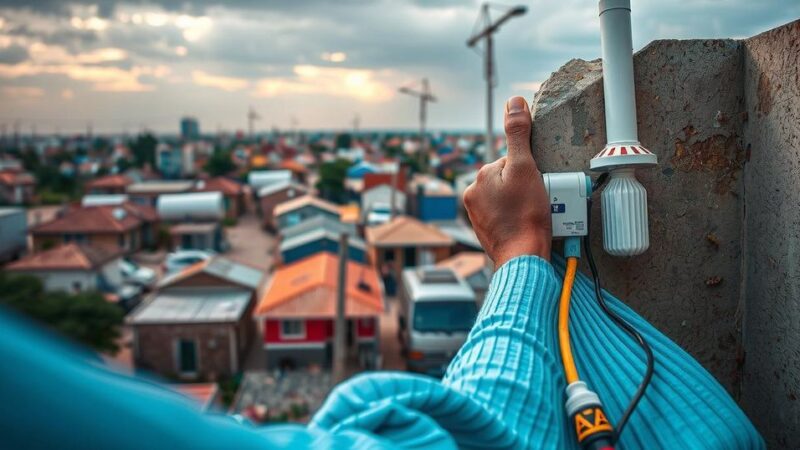Brazil has made significant strides in environmental leadership by reducing deforestation in the Amazon by 50 percent under President Lula da Silva’s administration. The introduction of the Tropical Forest Finance Facility (TFFF) aims to financially compensate developing nations for conserving their tropical forests. With a projected fund of $125 billion, the TFFF seeks to provide an innovative solution to deforestation, ensuring both ecological benefits and economic opportunities for countries involved.
Brazil has established itself as a significant player in global environmental efforts, particularly through its recent initiatives targeting deforestation in the Amazon. Following the re-election of President Luiz Inácio Lula da Silva, there has been a notable 50 percent reduction in deforestation rates within the Brazilian Amazon compared to the same months of the previous year. This impressive accomplishment is bolstered by the introduction of the Tropical Forest Finance Facility (TFFF), which is poised to launch a groundbreaking financial incentive program aimed at compensating developing nations for maintaining their tropical forests. The TFFF proposes a unique approach to environmental conservation by offering monetary rewards for the natural ecosystems provided by tropical forests, covering essential services including water management, biodiversity conservation, soil protection, nutrient cycling, and carbon sequestration. In conjunction with the United Nations, Brazil is working diligently to finalize the details of this program by the end of the year, with aspirations to leverage its host status for the UN climate summit in 2025 to facilitate its implementation. The envisioned fund for the TFFF is projected to be around $125 billion, operating on a model that avoids reliance on traditional donations from affluent nations. Instead, funding will be sourced through long-term loans from rich countries, philanthropic organizations, and private investors. This strategy seeks to create a diversified financial portfolio, ensuring returns substantial enough to compensate developers and effectively incentivize approximately 70 developing nations to conserve their tropical forest areas. The TFFF aims to provide these nations with approximately $1.60 per acre per year for preserved forests while imposing penalties for deforestation activities, approximating $160 per acre. The methodology behind monitoring compliance will rely on satellite imagery, ensuring transparency and accountability. By providing reliable funding streams, the TFFF could incentivize nations to abandon economically lucrative, yet environmentally harmful, land-use practices such as soybean farming. In essence, the TFFF not only presents a tantalizing opportunity for developing nations to gain access to affordable funding for ecological preservation but also positions Brazil as a leader in the global fight against climate change. The early enthusiasm from both wealthy and less affluent countries, despite inherent challenges, engenders a sense of cautious optimism for the initiative’s potential success as a nature-based solution to environmental crises.
Tropical forests represent one of the planet’s most crucial ecological resources. The staggering annual rate of 25 million acres of deforestation significantly impacts climate change by releasing stored carbon from trees and diminishing the capacity for forest carbon sequestration. Various initiatives, including carbon credit systems and grants, seek to counter deforestation but have struggled to yield significant results. Brazil, hosting a substantial portion of the world’s tropical forests, is at the forefront of this global challenge, especially as new leadership under President Lula da Silva adopts proactive measures to combat deforestation. A key component of Brazil’s strategy is the Tropical Forest Finance Facility, which intends to create a financial framework for supporting forest preservation on an unprecedented scale while ensuring economic stability for developing nations.
In conclusion, Brazil’s innovative approach through the Tropical Forest Finance Facility serves as a potential template for global environmental governance. By providing financial incentives for forest preservation and fostering international collaboration, Brazil could emerge as a pivotal leader in combating deforestation and mitigating climate change. The TFFF not only addresses ecological needs but also presents an opportunity for developing countries to access affordable funding, thus enhancing their capacities for sustainable development. The enthusiastic backing from various nations suggests promising prospects for this initiative, highlighting the increasing global commitment to nature-based solutions for climate challenges.
Original Source: www.independent.com







